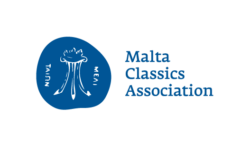Literacy Through Latin
The Literacy Through Latin project was directed towards taking the Classics outside the limits of University and into schools, exposing children to the joys of Classical culture and the Latin language. While Latin is a highly rewarding undertaking by itself, the main benefits that the children reap from such a project are an enhanced command of the English language and the acquirement of tools necessary for learning any other foreign language. The course delivered in Malta is based on the IRIS project as designed by UK Classicist Lorna Robinson.
What is IRIS?
IRIS is an educational charity which was founded in the UK in 2006 by Lorna Robinson in order to bring ancient languages and culture to inner city state schools and communities. The project began by offering IRIS Magazine for free to state schools proving a light-hearted insight to the Classical world. However, in September 2006, Robinson initiated a Latin course for children aged seven to eleven in large mixed-ability classes in inner city schools, using a method which she developed herself specifically for this pilot scheme. The course delivered Latin to students in an accessible and fun way, using activities and the myths of Ovid and at the same time keeping with and supporting the national curriculum literacy strategies. Activities were varied and lively, examples including the use of jigsaw pieces to teach inflection, making spider webs to display how Latin and English words were connected, making road signs to teach imperatives, and inventing ancient menus to introduce vocabulary and aspects of ancient culture. The course also encouraged children to explore ancient myths in a variety of ways, from drama and storytelling to artistic reinterpretations. The project proved to be very successful as well as highly popular and as a result the following year twenty state primary and secondary schools adopted the same course and began offering Latin to their own pupils. Since then the Project has continued to grow so that there are now several universities collaborating with Iris: The University of Oxford, King’s College London, University College London, Swansea University, University of Edinburgh, University of Glasgow and University of St. Andrews.
How is learning Latin beneficial?
Perhaps the most obvious benefit of Learning Latin is that over a quarter of English vocabulary is derived from Latin. By learning some key Latin words the children will be able to derive the meaning of several English words as well that of Latin derived words in any other language. In particular, the Romance languages, such as Italian, Spanish and French, are directly descended from Latin and therefore share many aspects in common with Latin both grammatically and in their vocabulary. Moreover, other languages which do not find their origins in Latin may still contain Latin derived words. An instance of this is Maltese which, despite its Semitic origins, contains in its vocabulary a significant amount of Latin derived words.
But beyond the meaning of words, the Literacy Through Latin project aims to teach children in an engaging manner the basic elements of language, the parts of speech out of which every sentence is composed, and the function of each of these elements within language. The children will learn the importance of word placement thus becoming more adept at expressing themselves, and to discern the meaning of a sentence when reading by examining the word placement. They will gain a better understanding of the inner workings of grammar and be provided with the tools to use this understanding to become more fluent in the languages they already know as well as for learning languages they have no prior knowledge of.
In addition to all of this, the task of reading Latin requires the pupil to engage in an exercise in translation, a highly valuable skill to harbor. Reading myths in Latin becomes a kind of code cracking game that satisfies their desire to find out what happens next, their imagination having been captured by stories of Gods and Goddesses, Roman heroes, Minotaurs, flying horses and other mythical creatures. Moreover, aside from being a fun way to learn about language, mythology might even serve to peak their interest in history since the two are so often intertwined.
Approval and funding
The Malta Classics Association obtained approval from the Ministry of Education to launch a pilot scheme of Literacy Through Latin starting October of 2017. The course was successfully delivered by a group of young and enthusiastic Classics undergraduates to students in their 5th year of primary education. The project ran in one state school and one independent school, namely St Thomas More Fgura Primary B and the project’s sponsor Chiswick House School.
